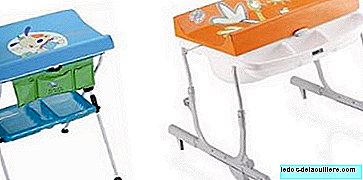
Nasal hemorrhages are one of the least known discomforts of pregnancy, and as in all of them, the hormones are responsible for their occurrence.
Due to the high levels of estrogen and the increase in blood flow to the mucous mucous membranes of the nose, it causes them to soften and swell, dry or bleed easily, especially in the winter months. That is the reason why Occasionally, your nose may bleed during pregnancy. What can you do? Should I see a doctor?
Control nasal congestion in pregnancy
It is a nuisance that usually appears towards the end of the first trimester and can continue until after delivery. To prevent bleeding, you must control nasal congestion and dryness in the nasal mucous membranes.
Use a humidifier to moisten the air, especially at night to sleep.
Drink fluids frequently
Aspirate hot steam. A hot shower before going to bed will help you sleep with a clear nose
Place drops of saline solution to moisten the nasal passages
When you blow your nose, do it gently
Use a band aid that opens the nostrils to sleep
Avoid smoky environments
What to do if my nose bleeds
If a nosebleed occurs, what you should do is remain seated and with your head up, because if you lie down or bow your head, you will swallow blood and feel nauseous.
Apply pressure by keeping the nostril tight and press for at least four minutes. Apply ice or a cold compress. The cold will help the blood vessels to narrow and stop the bleeding.
When to go to the doctor
Most pregnant women experiencing nosebleeds should not worry about adverse side effects. Usually, the amount of blood lost is too small to worry. Usually, the congestion, dripping and bleeding that occur during pregnancy disappear soon after delivery.
If you have bleeding very often or if it does not stop after applying pressure and ice, if it does not allow you to rest well at night, consult your doctor.












